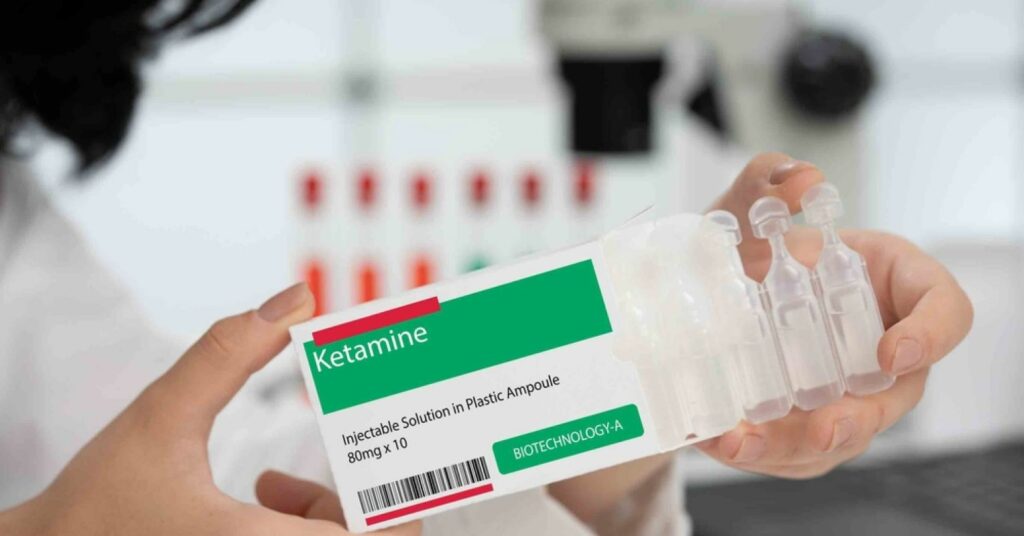A reporter’s journey out of depression.
Columnist Jon Tevlin recently covered his own journey out of depression in the Minneapolis Star Tribune article titled Depressed after his wife’s death, this Minneapolis man turned to ketamine therapy for help. Ketamine is the only legal psychedelic medication that is proven to be effective for treatment-resistant depression, bipolar depression, PTSD, anxiety and suicidal thoughts.
article continues after advertisement
Tevlin’s story is a powerful one. It’s also a common story.
Ketamine has been widely administered for years with unprecedented success at specialty clinics throughout the country. It can help transform and save lives. Stories like Tevlin’s are hugely important, giving hope to people who are struggling with severe depression and potentially limited treatment options, many of which have undesirable side effects.
As a psychiatrist, I’ve been working with ketamine patients in a clinical setting for a decade. In this post, I want to revisit elements of the story to underscore some key points:
A psychedelic high is not the goal
Tevlin’s article is a poignant descriptive of a ketamine therapy experience and the relief some people feel, though it’s not always that immediate. It’s important to know that the out-of-body or dissociative feelings that people sometimes experience are essentially a side effect, which can be pleasant for some and unpleasant for others.
However, the benefit of ketamine to decrease depression continues after the side effects resolve. Over time, the need for ketamine often diminishes and treatments may even be discontinued. For an example of this, read Tom’s story in my previous post.
Psychedelic-assisted psychotherapy is controversial
article continues after advertisement
Ketamine has shown to be beneficial with or without therapy. There is currently no generally accepted standard for psychedelic-assisted psychotherapy, though several models do exist. There is also no existing framework for providers to bill insurers for these services. As such, many clinics providing psychedelic-assisted psychotherapy are using their own, independent standards and bill patients directly.
Psychotherapy is still important. According to Yale Medicine, “ketamine may be most effective when combined with cognitive behavioral therapy (CBT), a type of psychotherapy that helps patients learn more productive attitudes and behaviors.” That is quite different from giving a patient ketamine during a psychotherapy session.
Research is changing minds … gradually
There is some more recent research available than the 2019 National Institutes of Health (NIH) report cited in the Star Tribune article. With plenty of evidence that ketamine is effective, today’s science is delving deeper into exactly how it works on a molecular level and how it can be targeted to specific areas of the brain. Here are a couple examples:
article continues after advertisement
Insurance coverage is not keeping pace
Very few insurance companies currently cover ketamine treatment for qualified patients, the number of companies who cover it has actually declined in recent years. For example, HealthPartners stopped covering ketamine for depression on July 1st, 2024.
The only FDA-approved derivative of ketamine for the treatment of depression is esketamine, a nasal spray under the brand name Spravato. Esketamine is approved by most insurance companies, but it’s also the least potent and most expensive option, with some analyses showing it to be three times less effective than intravenous (IV) ketamine.
Ketamine doesn’t always work
Nothing in mental health is a panacea, so it is important to keep in mind that there are many other options for the treatment of depression and anxiety, including transcranial magnetic stimulation (TMS), vagus nerve stimulation (VNS), and new medications that work differently from older treatments.
article continues after advertisement
Conclusion
Patients need more stories such as Tevlin’s. As the first psychedelic medication to move into mainstream clinical psychiatric use, ketamine is steadily rising to the intense scrutiny that is ultimately good for patients and practitioners alike.
Source link : https://www.psychologytoday.com/za/blog/defying-treatment-resistant-disorders/202406/reflections-on-one-mans-ketamine-therapy?amp
Author :
Publish date : 2024-06-28 19:28:38
Copyright for syndicated content belongs to the linked Source.
